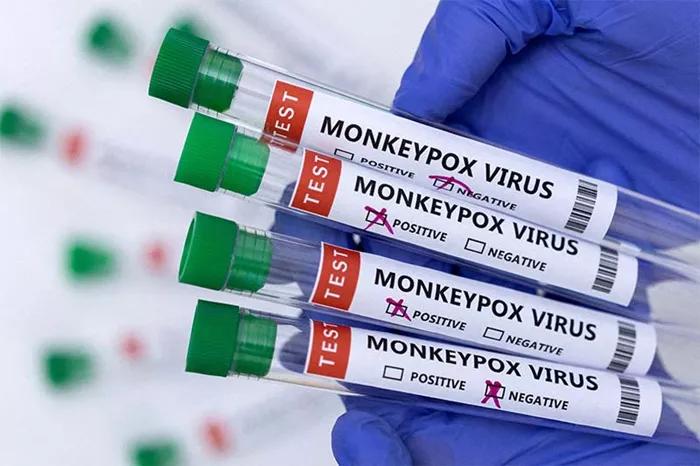Addis Ababa, Ethiopia, 13 Aug 2024– In a historic move, the Africa Centres for Disease Control and Prevention (Africa CDC) has declared the ongoing Mpox outbreak a Public Health Emergency of Continental Security (PHECS). This marks the first time the agency has issued such a declaration since its establishment in 2017.
This critical declaration, made under Article 3, Paragraph F of the Africa CDC Statutes, grants the organization the authority to spearhead and coordinate responses to significant health crises across the continent. The statute specifically empowers Africa CDC to support member states in managing health emergencies, particularly those classified as PHECS or Public Health Emergencies of International Concern (PHEIC). Additionally, it emphasizes the agency’s role in health promotion, disease prevention, and the strengthening of health systems to address both communicable and non-communicable diseases, environmental health, and Neglected Tropical Diseases.
By declaring Mpox a PHECS, Africa CDC can now mobilize essential resources across affected regions. This includes unlocking critical funding, enhancing Risk Communication and Community Engagement (RCCE), bolstering surveillance and laboratory testing efforts, and strengthening human resources to mount an effective response through a One Health approach.
Dr. Jean Kaseya, Director General of Africa CDC, stressed the urgency of the situation: “Today, we declare this PHECS to rally our institutions, our collective resolve, and our resources for swift and decisive action. This empowers us to forge new partnerships, fortify our health systems, educate our communities, and deliver life-saving interventions where they are needed most. At this time, travel restrictions are not necessary.”
The outbreak has already affected 13 African countries, including nations like Burundi, Kenya, Rwanda, and Uganda, which had previously been free of Mpox. In 2024 alone, these countries have reported 2,863 confirmed cases and 517 deaths, with the Democratic Republic of the Congo (DRC) bearing the brunt of the crisis. Suspected cases across the continent have surged past 17,000, a sharp rise from 7,146 cases in 2022 and 14,957 in 2023. These figures may only represent a fraction of the true extent of the outbreak, given existing weaknesses in surveillance, laboratory testing, and contact tracing.
“This is not just another challenge; it’s a crisis that demands our collective action,” Dr. Kaseya emphasized. “Article 3, Paragraph F of the Africa CDC Statutes mandates us to lead and coordinate the response when there is a declaration of a public health emergency of international concern.”
From May 2022 to July 2023, the World Health Organization (WHO) had declared Mpox a Public Health Emergency of International Concern (PHEIC). However, during that period, Africa did not receive the necessary support, even as global cases declined. Dr. Kaseya called for a change in this approach, urging international partners to collaborate more closely with Africa CDC to provide critical support to member states.
“We call on our global partners to stand with us in this critical hour,” Dr. Kaseya continued. “Africa has long been on the frontlines in the fight against infectious diseases, often with limited resources. The battle against Mpox demands a global response. We need your support, expertise, and solidarity. The world cannot afford to turn a blind eye to this crisis.”
The decision to declare the emergency followed extensive consultations, including a unanimous recommendation from the Africa CDC Emergency Consultative Group (ECG), chaired by Professor Salim Abdool Karim, head of the Centre for the AIDS Programme of Research in South Africa (CAPRISA). Prof. Karim noted that limited surveillance and evidence suggest the outbreak may be more severe than currently understood.
“The number of cases has significantly increased compared to 2022 when WHO declared Mpox a public health emergency,” Prof. Karim stated. “It’s clear that we’re facing a different scenario with far more cases, resulting in a higher burden of illness.” He also expressed concern over the rising fatalities, particularly the potential link between HIV and Mpox. “Our concern is that we may be seeing more fatalities in Africa due to the association with HIV,” he added.
The ECG also raised alarms over cross-border transmission to previously unaffected countries, prompting calls for the strategic distribution of limited vaccine supplies. The lack of diagnostic capabilities was identified as a critical issue requiring immediate attention, and the ECG pledged to support the development of comprehensive response plans.
In response to the outbreak, Africa CDC has established a 25-member Incident Management Team at the epicenter of the epidemic, tasked with supporting affected and at-risk countries. The agency has also entered into a partnership with the European Commission’s Health Emergency Preparedness and Response Authority (HERA) and Bavarian Nordic to secure over 215,000 doses of the MVA-BN® vaccine—the only Mpox vaccine approved by both the FDA and EMA. Africa CDC will oversee the equitable distribution of these vaccines, ensuring they reach those in need across the affected member states.
Mpox is a viral illness caused by the monkeypox virus, which has two distinct clades: Clade I and Clade II. Common symptoms include a skin rash or mucosal lesions lasting 2–4 weeks, fever, headache, muscle aches, back pain, low energy, and swollen lymph nodes. The virus spreads through physical contact with an infectious person, contaminated materials, or infected animals.
As Africa faces this escalating health crisis, the declaration of a PHECS by Africa CDC is a crucial step towards mobilizing the continent’s resources and securing international support to combat the spread of Mpox. The agency’s call for global solidarity underscores the urgent need for a coordinated and comprehensive response to this public health emergency.
[inline_related_posts title=”You Might Be Interested In” title_align=”left” style=”list” number=”6″ align=”none” ids=”11347,11351,11339″ by=”categories” orderby=”rand” order=”DESC” hide_thumb=”no” thumb_right=”no” views=”no” date=”yes” grid_columns=”2″ post_type=”” tax=””]



































